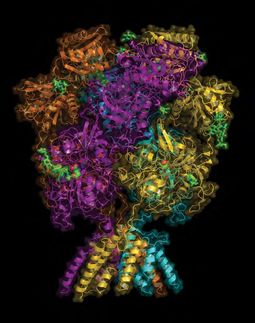Clinical data confirms potential of Allon’s davunetide as treatment for cognitive impairment in schizophrenia patients
Advertisement
Allon Therapeutics Inc. announced that the results of a Phase IIa clinical trial indicate that the Company’s lead neuroprotective drug candidate davunetide achieved measurable positive treatment effects in schizophrenia patients with cognitive impairment. The trial was managed by TURNS (Treatment Units for Research on Neurocognition and Schizophrenia), with substantial financial support from the National Institute of Mental Health (NIMH), part of the U.S. National Institutes of Health.
Dr. Daniel Javitt, lead study investigator and Director of Cognitive Neuroscience and Schizophrenia at the Nathan Kline Institute for Psychiatric Research in Orangeburg, N.Y., said the data supports and augments top-line results released in July 2009.
“Further evaluation in a large number of patients is necessary and warranted to determine whether davunetide could become the first approved treatment for cognitive impairment associated with schizophrenia,” said Dr. Javitt.
The trial did not achieve statistical significance on the primary endpoint, which was the MATRICS (Measurement and Treatment Research to Improve Cognition in Schizophrenia) composite battery of tests. However, numerical positive treatment effects were seen in specific tests that measured visual learning and working memory. A change was observed in verbal learning favouring placebo.
The trial achieved a statistically significant positive treatment effect on a secondary endpoint, which was the UCSD (University of California at San Diego) Performance-based Skills Assessment (UPSA) test. The UPSA scale assesses the functional capacity of skills for daily living and has been recognized by drug regulators as an appropriate co-primary endpoint in patients suffering from schizophrenia-related cognitive impairment.
Trial data showed that davunetide was safe and well tolerated by patients with adverse events typical of this patient population. The most commonly reported adverse events were headache, restlessness and sedation.
Most read news
Organizations
Other news from the department research and development

Get the life science industry in your inbox
By submitting this form you agree that LUMITOS AG will send you the newsletter(s) selected above by email. Your data will not be passed on to third parties. Your data will be stored and processed in accordance with our data protection regulations. LUMITOS may contact you by email for the purpose of advertising or market and opinion surveys. You can revoke your consent at any time without giving reasons to LUMITOS AG, Ernst-Augustin-Str. 2, 12489 Berlin, Germany or by e-mail at revoke@lumitos.com with effect for the future. In addition, each email contains a link to unsubscribe from the corresponding newsletter.






















































